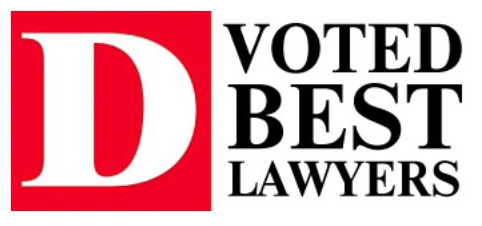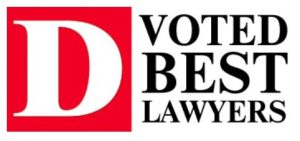Running a small business means wearing many hats. Contracts, hiring, customer issues, and compliance can move from background noise to front-page problems overnight. The good news: most legal headaches are manageable with early planning, clear documentation, and steady guidance.
At Cuccia Wilson, our approach is simple—Daily Counsel for Your Business and Family. We listen first, help you prioritize risks, and put practical guardrails in place so you can focus on building the company you envisioned.
1. Customer Complaints, Product Issues, and Refund Disputes
What it looks like: unmet expectations, warranty questions, chargebacks, negative reviews that hint at legal threats, or claims tied to faulty goods/services.
Why it matters: isolated complaints can escalate—sometimes into coordinated claims.
Good practice checklist:
Publish clear terms (shipping, refunds, warranties) and train staff to follow them.
Keep a documented complaint-handling process (dates, responses, resolution).
Review marketing for accuracy—avoid promises you can’t keep.
For products, maintain quality controls and incident logs.
2) Worker Injuries and HR Processes
What it looks like: on-the-job strains/sprains, safety incidents, or confusion about reporting and return-to-work policies.
Why it matters: workers’ compensation may apply, but how you document and communicate can affect outcomes.
Good practice checklist:
Keep written safety policies and regular training logs.
Report injuries promptly and document facts, not assumptions.
Provide consistent, fair treatment—communication builds trust and reduces friction.
Coordinate with your insurer and keep copies of everything you submit.
3) Discrimination and Harassment Allegations
What it looks like: complaints tied to hiring, promotions, discipline, or hostile work environment claims.
Why it matters: disputes can grow quickly if issues go unaddressed or policies are not followed.
Good practice checklist:
Maintain up-to-date anti-discrimination and anti-harassment policies.
Train managers (and employees) on reporting channels and documentation.
Investigate concerns promptly and neutrally; document each step.
Apply policies consistently to avoid claims of unequal treatment.
4) Intellectual Property (IP) and Branding Conflicts
What it looks like: similar logos or names, using third-party images or code without permission, or others copying your creative work.
Why it matters: IP disputes are costly and distracting—and preventable.
Good practice checklist:
Clear new names/logos with a basic clearance search before launch.
Use licensed images, fonts, and software; keep license records.
Mark your own creative assets and consider registrations (trademarks, copyrights).
For software/content, maintain contributor agreements and permissions.
5) Contracts You’ve Outgrown
What it looks like: handshake deals, outdated templates, missing terms on scope, delivery, fees, IP ownership, confidentiality, or dispute resolution.
Why it matters: unclear contracts are the most common root cause of business disputes.
Good practice checklist:
Use clear, readable contracts—avoid legalese where possible.
Define scope, timing, payment, remedies, and termination rights.
Include confidentiality and IP ownership clauses when applicable.
Calendar renewal/notice dates so you don’t miss key windows.
6) Real Estate & Environmental Surprises
What it looks like: leases with hidden costs, unclear maintenance duties, or environmental issues discovered after closing.
Why it matters: long-term obligations can strain cash flow, and environmental liabilities can linger.
Good practice checklist:
Review lease CAM charges, repair obligations, assignment/sublease rights, and default provisions.
For purchases, consider a Phase I Environmental Site Assessment if risk indicators exist.
Document property conditions at move-in and move-out.
7) Data, Privacy, and Customer Information
What it looks like: collecting emails, payment info, or customer data without a clear privacy policy or retention plan.
Why it matters: even small businesses are expected to protect sensitive data.
Good practice checklist:
Post a plain-language privacy notice; collect only what you need.
Limit access internally and set retention/delete schedules.
Use reputable processors for payments and keep software updated.
8) Deadlines: Demand Letters, Lawsuits, and Responses
What it looks like: demand emails, certified letters, or service of a lawsuit that sits on a desk.
Why it matters: timing is everything. Missed deadlines can lead to default judgments that are expensive to unwind.
Good practice checklist:
Open and calendar legal notices immediately.
Acknowledge receipt professionally; avoid admissions.
Gather contracts, emails, and timeline facts first.
Respond within required deadlines; consider mediation early.
When to Call a Lawyer
You’re updating or signing a high-value contract.
A complaint, injury, or data issue could escalate.
You’ve received a demand letter or been served.
You’re planning a major change (new brand, location, or acquisition).
Bottom line: you don’t need to solve everything at once—you just need a plan. At Cuccia Wilson, we take time to understand how your business actually works and help you set practical, right-sized guardrails. That’s Daily Counsel for Your Business and Family.
This article is for general information only and isn’t legal advice. Every case is unique; if you have questions about your situation, contact us today to schedule a free initial consultation with our Business attorneys.




